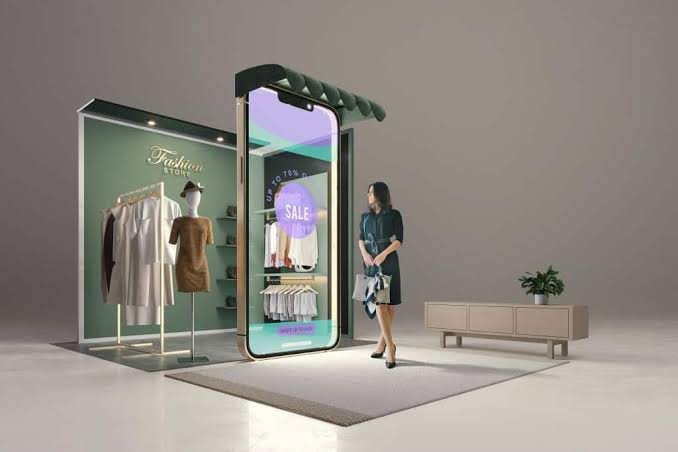The construction industry has evolved significantly with the integration of digital technology, and one of the most impactful innovations is the virtual showroom. A virtual showroom enables builders, contractors, and designers to showcase products and services interactively, transforming the way clients engage with construction projects. By incorporating a digital showroom, construction businesses can offer a more immersive, convenient, and efficient experience for clients, leading to increased satisfaction and higher conversion rates.
Enhanced Visualization and Immersive Experience
One of the biggest advantages of a virtual showroom is the ability to provide clients with high-quality visual representations of materials, finishes, and designs. Unlike traditional catalogs and physical samples, a digital showroom allows clients to explore 3D models, virtual reality (VR) simulations, and augmented reality (AR) features to visualize their projects in a realistic setting. This immersive experience enables clients to make informed decisions, reducing uncertainty and increasing confidence in their choices.
By using a digital showroom, clients can see how different materials, colors, and textures will look in a completed space. This eliminates the need for multiple physical visits and material swaps, saving time and enhancing engagement by allowing clients to experiment with options in real time.
Convenience and Accessibility
Traditional showroom visits can be time-consuming and often require scheduling appointments, which may not always align with a client’s availability. A virtual showroom offers unmatched convenience, allowing clients to explore construction materials and designs from the comfort of their homes at any time. This accessibility is particularly beneficial for busy professionals and long-distance clients who may not be able to visit a physical showroom easily.
A digital showroom provides an on-demand experience, ensuring that clients can access relevant information whenever they need it. This flexibility improves engagement, as clients feel more in control of their project’s decision-making process without the pressure of in-person sales interactions.
Streamlined Communication and Collaboration
A virtual showroom enhances communication between clients, designers, and contractors by providing an interactive platform for collaboration. Many digital showroom platforms integrate with project management tools, allowing stakeholders to share feedback, make real-time modifications, and approve selections seamlessly.
For example, a client selecting flooring options can use the digital showroom to mark preferences, which can then be reviewed by the project team instantly. This eliminates misunderstandings, speeds up approvals, and ensures that all parties remain aligned throughout the construction process. Additionally, incorporating live chat features and virtual consultations within a digital showroom further improves engagement by offering instant support and guidance.
Personalization and Customization
Clients appreciate a personalized experience when making important construction decisions. A digital showroom can be tailored to provide customized recommendations based on a client’s preferences, budget, and project requirements. By using artificial intelligence (AI) and data analytics, virtual showroom platforms can suggest materials and designs that best suit an individual’s style and needs.
Furthermore, clients can actively participate in the design process by modifying elements such as wall colors, cabinetry styles, or lighting options within the digital showroom. This hands-on approach increases their emotional investment in the project and enhances overall engagement.
Efficient Decision-Making and Reduced Project Delays
Delays in decision-making can lead to project setbacks and increased costs. A virtual showroom simplifies the selection process by presenting all available options in a structured and visually engaging manner. Clients can compare different materials side by side, read product specifications, and even receive real-time price estimates.
By streamlining the selection process, a digital showroom minimizes hesitation and accelerates decision-making. This reduces project delays and ensures that construction timelines remain on track, ultimately improving the overall client experience.
Sustainability and Cost Savings
Another key benefit of a virtual showroom is its contribution to sustainability. By reducing the need for printed catalogs, physical samples, and travel to showrooms, construction businesses can lower their environmental impact. A digital showroom also minimizes material waste by providing accurate digital representations of products, eliminating unnecessary sample production.
Additionally, businesses can save costs associated with maintaining physical showrooms and investing in printed marketing materials. This cost efficiency allows companies to allocate resources more effectively while still offering an engaging and high-quality customer experience.
Competitive Advantage in the Market
With the construction industry becoming increasingly competitive, businesses that adopt a digital showroom gain a distinct edge. Offering a virtual showroom demonstrates a commitment to innovation, customer-centric service, and technological advancement. Clients are more likely to engage with and trust a company that provides modern, efficient solutions tailored to their needs.
By leveraging digital showroom technology, construction firms can attract a wider audience, including tech-savvy clients who prefer digital interactions. This broadens market reach and strengthens brand reputation, ultimately leading to increased sales and customer retention.
Conclusion
A virtual showroom significantly enhances client engagement in the construction industry by providing an immersive, convenient, and interactive experience. With features like enhanced visualization, real-time collaboration, personalized customization, and streamlined decision-making, a digital showroom empowers clients to take an active role in their projects. Additionally, sustainability and cost savings further contribute to its advantages. As the construction industry continues to embrace digital transformation, investing in a digital showroom is a strategic move that can set businesses apart and foster long-term client relationships.






